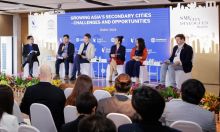SMU’s Singapore Rising Scholars Conference springboards postgrads into global research
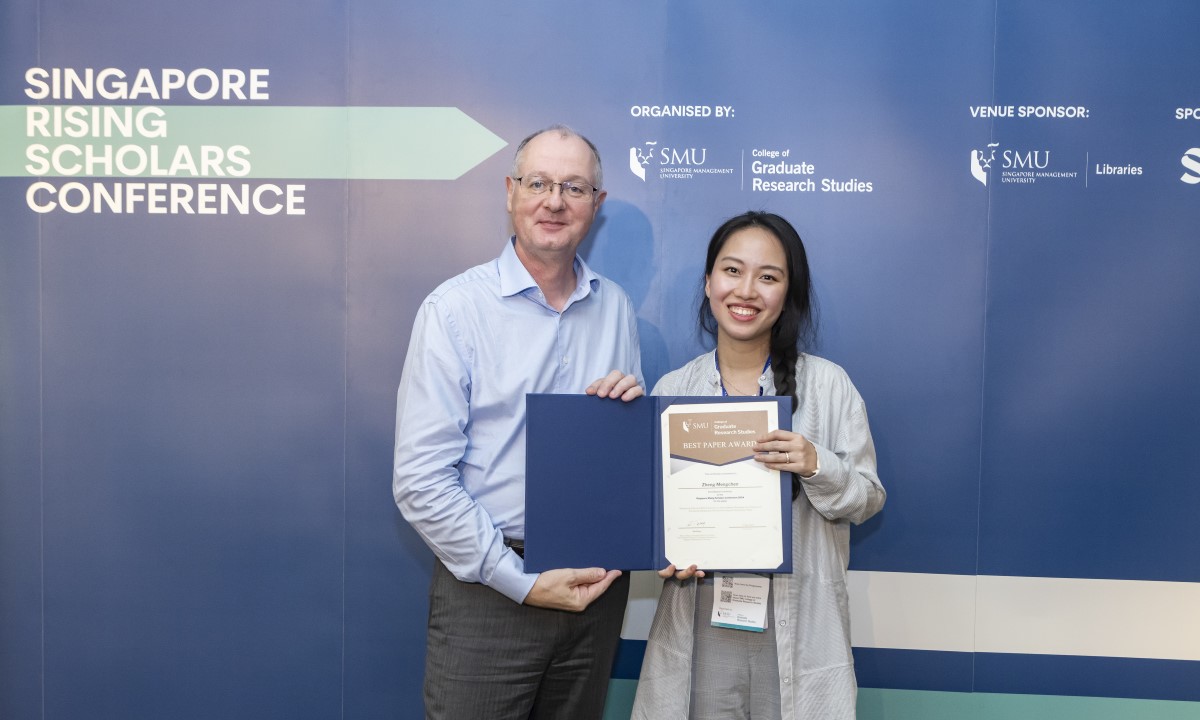
The journey of a PhD student is riddled with complexities –how do you formulate research questions and navigate uncertainties in research projects? How do you choose and collaborate with coauthors, and meet journal publication deadlines? How do you manage time effectively amidst coursework, research, and personal commitments?
To systematically help postgraduate research students, SMU’s College of Graduate Research Studies (CGRS) launched the first Singapore Rising Scholars Conference (SRSC) in May 2023. The second iteration of this conference was held on 16 and 17 May 2024; going from a one-day event with about 48 presenters from 11 universities last year, to a two-day event with 60 papers by presenters from 22 institutions around the world.
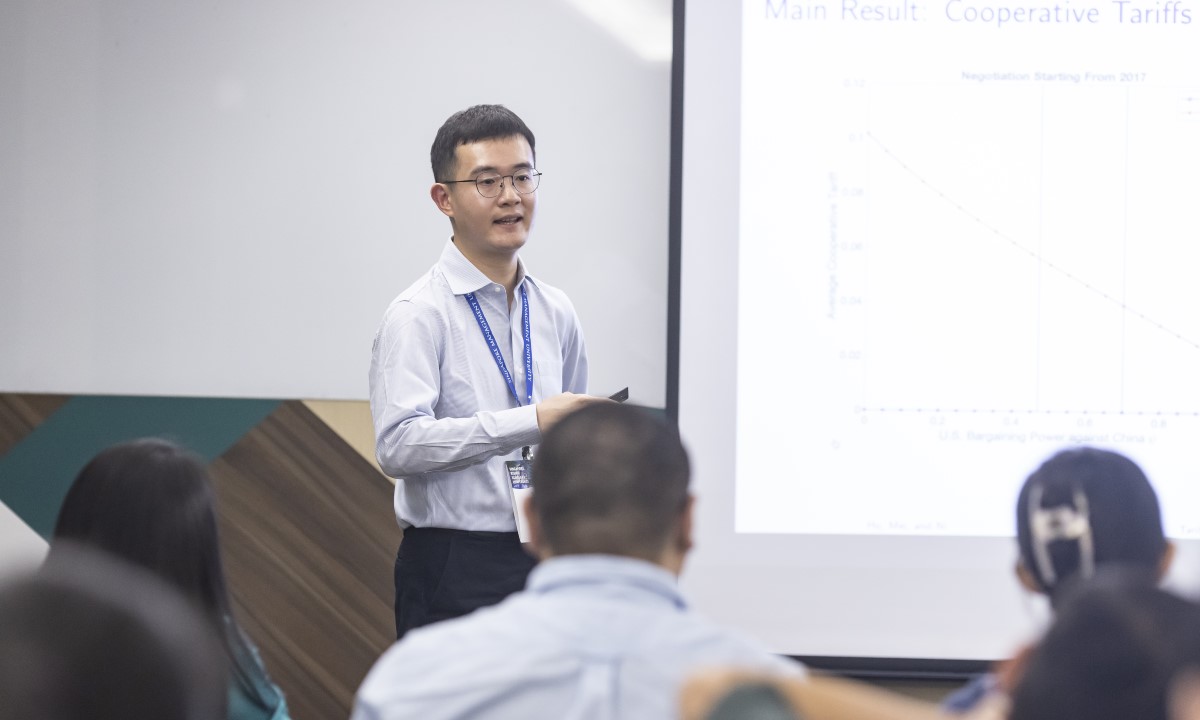
The universities represented this year include Boston University, Ecole des Ponts ParisTech, Fudan University, Peking University, The University of Hong Kong, The Chinese University of Hong Kong, Hitotsubashi University, National University of Singapore, and Singapore University of Technology and Design.
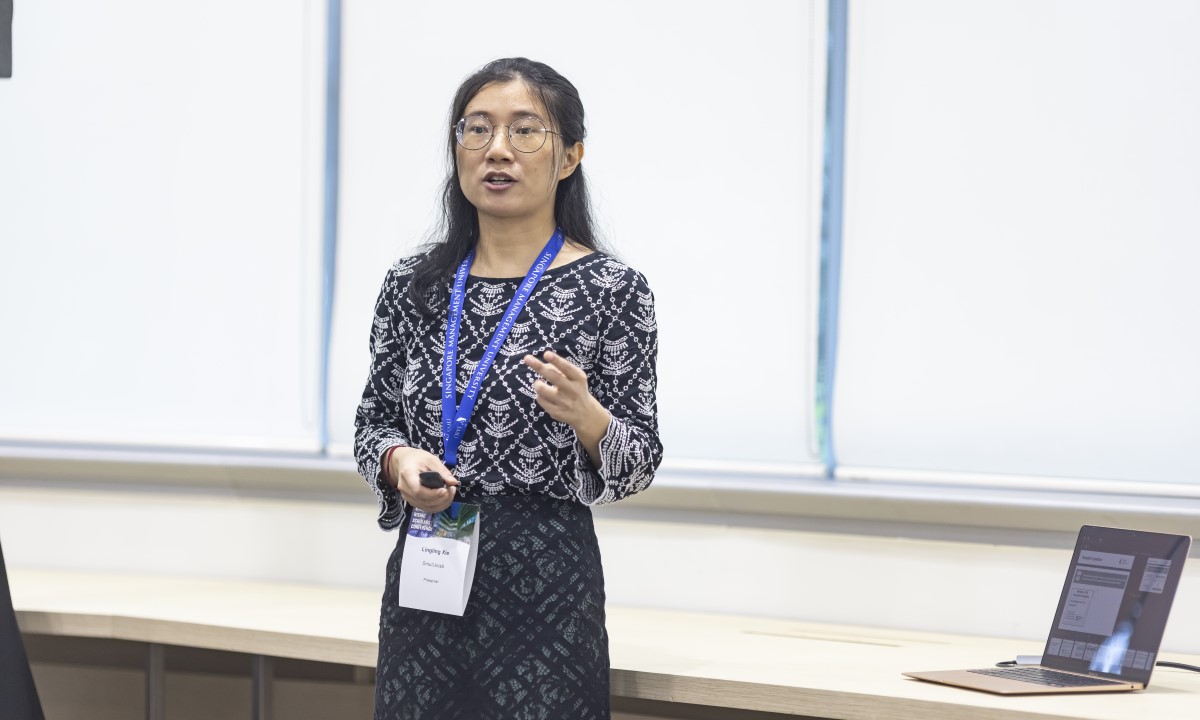
“The SRSC is unique for being first and foremost, a truly peer-to-peer doctoral students Conference in the region,” said Professor Heli Wang, the Dean of CGRS, at her welcome address this year.
The two-day conference was held at SMU Li Ka Shing Library, with papers presented covering many fields including social science, psychology, corporate governance, information systems, marketing, and management strategy. At the end of the event, nine PhD students were conferred the Best Paper Award for their fields.
This year’s event included the inaugural networking session by the Graduate Research Alumni Chapter (GRAC) of CGRS, in line with the aims of supporting the development, wellbeing, and lifelong connections among the postgraduate research community.
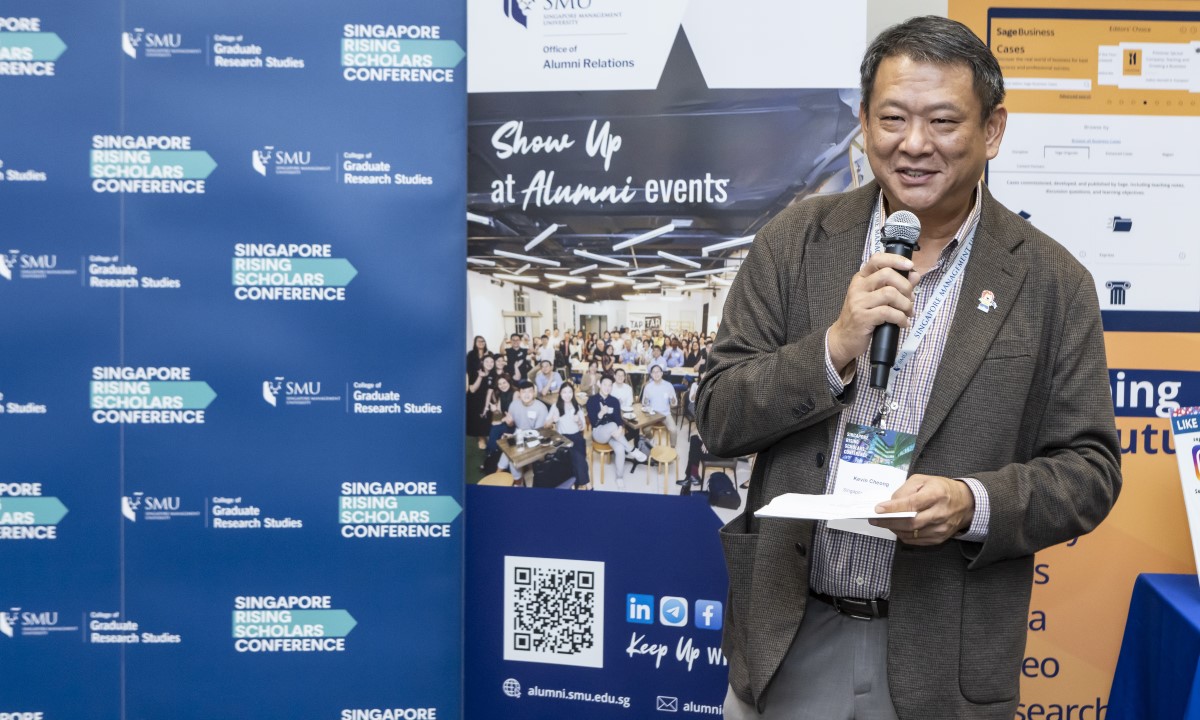
Discussing issues pertinent to the PhD Journey
Besides the regular paper presentations, four panel discussions took place, two of which delved into issues crucial to the doctoral experience.
The first discussed how generative AI affects academic careers and scholarship. The second panel examined post-PhD or doctoral programme options. The third looked at research interactions between academia and industry.
The fourth panel was a deep dive into developing as a PhD, and panellists spoke of how to navigate milestones in the PhD journey. SMU Provost Timothy Clark, the key panellist for this panel, shared his experience on how to build connections with journal editors and get published.
He shared that it is important to be well-versed in one’s research subject. “I've always tried to keep in touch with a range of journals and pay attention to the content of every issue. Of course, attending conferences, workshops, and seminars gives you a real sense of what might be published in two to three years’ time.”
The ability to present easily, and network well at conferences, and respond to reviews are crucial soft skills for one's advancement, he emphasised. He struck a chord with the audience when he spoke about handling adverse reviews, he said that if he felt annoyed or misunderstood by a reviewer, he would first take a walk before rereading the review with a calmer mind. He would make sure to take notes on what he had to do to improve, and to what he could simply respond.
“Very early on in my academic career I found myself getting into the habit of always writing to journal editors and querying some of their decisions, and they always got back to me. Writing persuasively is a valuable soft skill, and it requires practice to develop.”
This was emphasised by the SMU Librarians, who also conducted seminars on scientific writing, data analysis and getting published to raise research visibility for attendees.
See also: A springboard to the world for young researchers | SMU Newsroom

